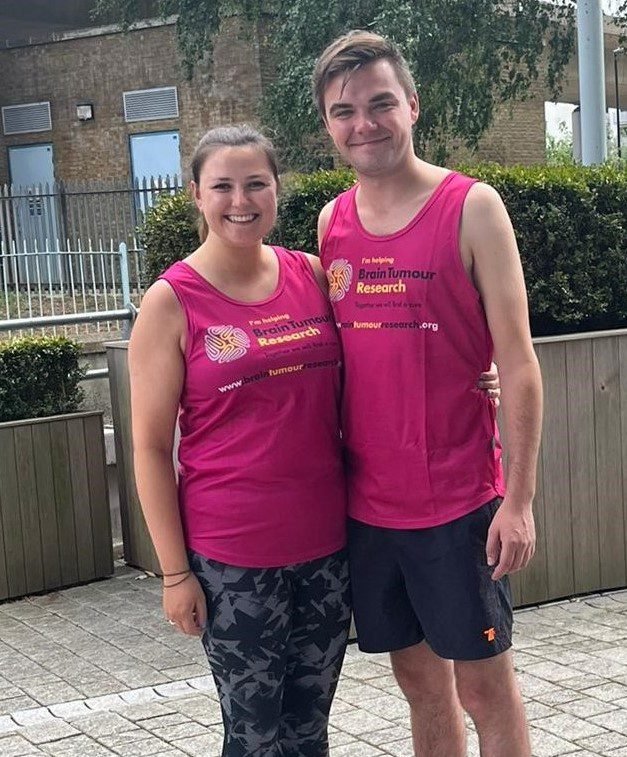Man who lost mum to brain tumour invited to see scientists work on a cure
A couple who raised £10,000 for brain tumour research visited a centre where scientists work on a cure days after one of them lost their mum to the illness.
Deptford residents Adam D’Aubney and girlfriend Gemma Lewis, both 28, were given the opportunity to visit the Brain Tumour Research Centre of Excellence at Imperial College London yesterday.
The pair took part in the Simplyhealth Great North Run in September last year, raising more than £10,000 for the charity.

Their fundraising efforts were inspired by Adam’s mum, Deb D’Aubney, who was diagnosed with an inoperable grade 4 glioblastoma (GBM) after suffering with severe headaches.
Deb, a mum-of-two and solicitor who lived in Sutton Coldfield in the West Midlands, underwent radiotherapy and chemotherapy, but sadly succumbed to her illness last Thursday, just 11 months after her diagnosis. She was 54 years old.
Adam said: “Mum was a formidable character who always grabbed life by the horns. Her brain tumour took that from her and then took her from us. It’s such a cruel disease.”
Gemma said: “Deb was a wonderfully fierce, strong-willed, and inspirational woman. She was sharp-witted and always filled a room with laughter.”
Adam, a data analyst for property website Zoopla, and Gemma, a secondary school English teacher, were among a select group of supporters invited to the centre to hear presentations from principal investigators and to speak to scientists about their work to find a cure.

A surgical team under leading neurosurgeon Kevin O’Neill is exploring ways to develop new tools, techniques and procedures to improve and optimise the complex science of neurosurgery.
These include Raman spectroscopy, a method of using light from a laser to identify molecules within a brain tumour which could enable neurosurgeons to determine the type of brain tumour during surgery and guide them on how much of the tumour to remove.
Scientists, led by Dr Nelofer Syed, are also working on how artificial intelligence can help provide greater insights into personalised treatments and how the effectiveness of radiotherapy for patients with GBM, the most common type of primary high-grade brain tumour in adults, can be improved, among a number of significant research projects.
Adam and Gemma were then invited to recognise their fundraising achievements by placing three tiles, dedicated to Deb, on the centre’s Wall of Hope.
Each one is representative of the £2,740 it costs to fund a day of research.
Adam said: “Placing the tiles was particularly emotional given how recently mum passed, but it is lovely knowing there will be a permanent memorial of the legacy she helped create.
“Whilst curing this disease will come too late for her, we’re determined to do all we can to ensure that others don’t suffer the same fate. Things have to change. Families like mine can’t continue losing loved ones because of the shameful underinvestment in brain tumour research.”
Pictured top: Deb with her children Adam and Kate D’Aubney (Picture: Brain Tumour Research)
